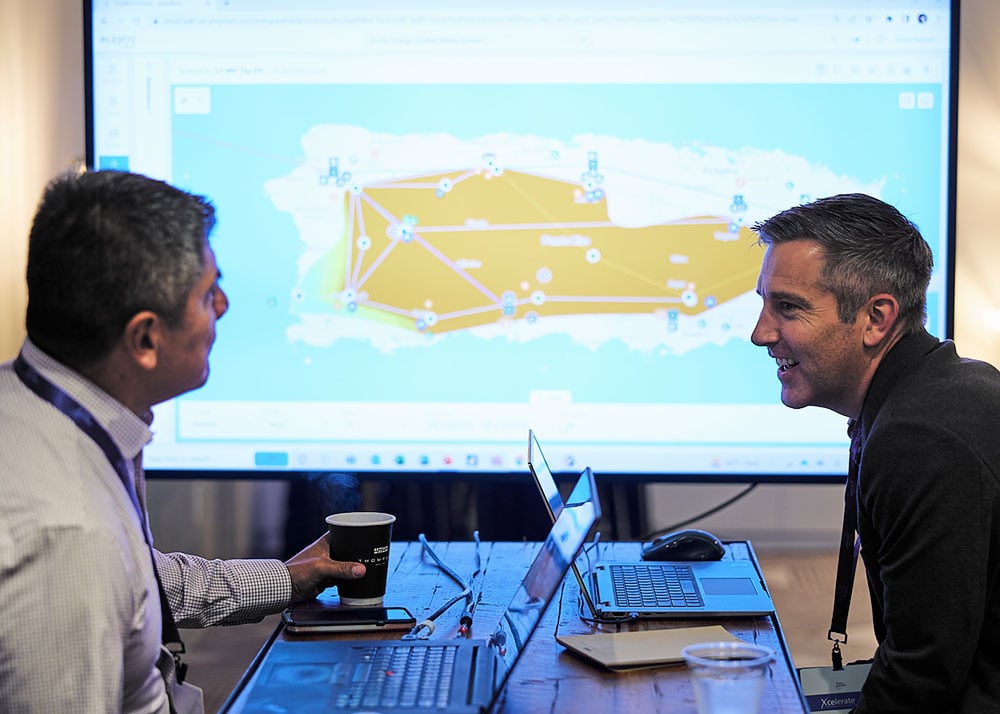E-Book
Why the Energy Transition Demands Integrated System Planning
The energy industry is undergoing a period of significant disruption - enacting an energy transition, coping with a changing climate, and navigating the dynamics of a more involved consumer.
The traditional planning approach of Integrated Resource Planning (IRP) was designed with a much more stable and predictable energy system in mind, and as a result, industry experts foresee that the methodology will not be fit for purpose as we move into the future.
This is where Integrated System Planning (ISP) comes in. The evolving energy system has many interdependencies and variables, and to maintain a reliable and affordable grid, utilities and energy companies will need to adopt a holistic planning method that accounts for that. ISP is this new, holistic approach, providing a blueprint for the power system of the future and all major power system pieces - spanning generation, transmission, distribution, and customer programs.
Ready to learn more about ISP? We have you covered. Explore this page for resources to get you started.
Why the Energy Transition Demands Integrated System Planning
The Future of IRP: Integrated System Planning
Introducing the concept of Integrated System Planning
Learn how leading organizations are implementing ISP

In this video presentation, learn about ISP from Energy Exemplar's ISP expert - Carlos Romero. He covers the industry trends driving ISP, gives an overview of ISP, shares examples of real-world use cases demonstrating ISP in practice, and suggests an approach to ISP for utilities and market planners.
In this infographic, learn why ISP is important, and how to get started making ISP a reality in your organization.

As a regional transmission operator (RTO), ISO New England is at the forefront of planning for the challenges of a transforming grid. Facing many of the same challenges as utilities and energy organizations who will need to adopt an ISP approach, ISO New England has leveraged PLEXOS for its extensive EPCET.

ISP requires a far more complex view of the energy industry - one that models it as a holistic system, rather than disparate parts. Most solutions are not designed to model numerous, interconnected components (often with different physical properties) together in an integrated system. Energy Exemplar's PLEXOS® platform is unique because it has been designed and engineered to co-optimize multiple commodities: power, gas, hydrogen, water, and heat among others - it's also extremely customizable.
One of the big ways we use PLEXOS is long-term planning. So, for example, I'm working on an integrated resource plan in an African country. This is about making sure that you've captured all elements - demand generation, supply, actually combine PLEXOS modeling with network modeling and come up with a master plan, if you like, an integrated plan of what should be happening over the next 20 years or so - or even longer.
I really enjoy the ability to run lots of different simulations into the future. So, it's like rolling the dice many times... it allows us to really understand vast levels of possibilities for the future. It's a great tool for exploring curiosity. It's an incredible tool for contributing to an understanding of the future. And the wonderful thing about tools like PLEXOS is that when you have a tool that helps you understand the future, you can be proactive rather than reactive. And that's an incredibly powerful thing to have in today's world.
I use PLEXOS to solve different kinds of problems actually. It really depends on the research question that my group is facing. For example, short term problems like dispatching electricity, ranging from these kind of problems to long term expansion and generation and transmission expansion plans. Right now, I'm focusing on this on this last kind of problems, especially trying to model the energy transition as far as Italy is concerned in the European electricity system.
Economic Studies is our name for our long-range studies that we've been engaged in for the last decade or so. We were previously using a different production cost software, and we moved to PLEXOS as part of - these studies focus on trying to imagine different futures as part of us making a road map on how to get there, and identifying the different challenges in terms of reliability, cost or other things about future grids in order to inform our stakeholders - including our state governments.
PLEXOS helps us to prepare for the future because it's a really powerful tool in scenario modeling. With PLEXOS, we can model multiple different possible futures - like see how the impact of gas price affects a business case or how the cost of carbon affects the build out and the outcome. And with PLEXOS, you can also quantify and study different new emerging technologies like fuel cells, battery storage, long-term battery or long-term energy storage, power to x, power to x to power, and so forth.